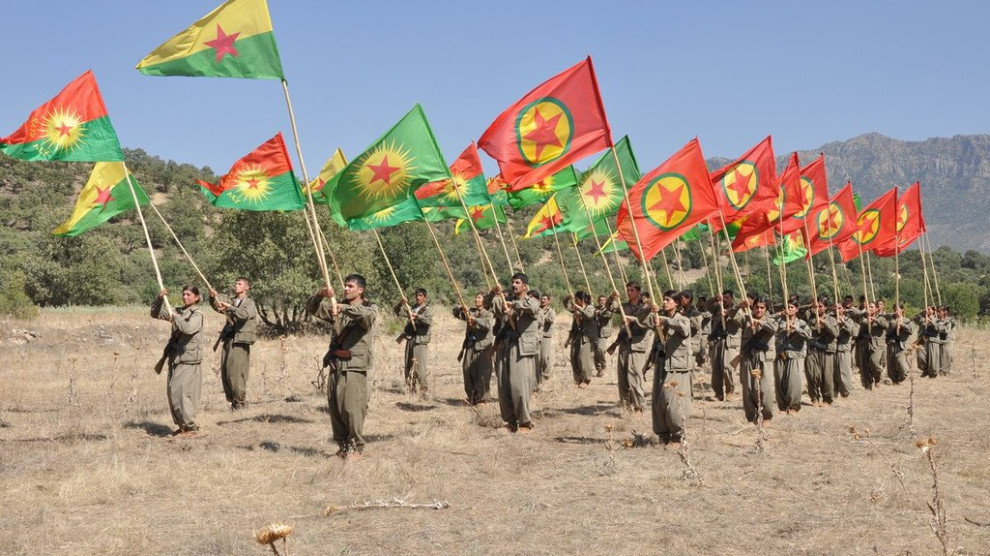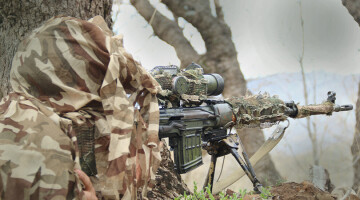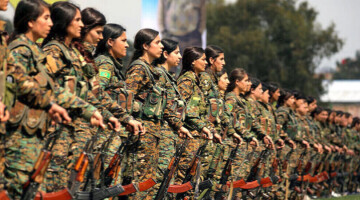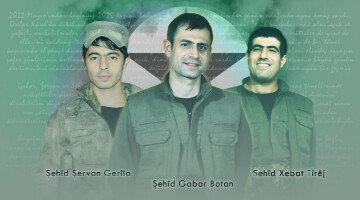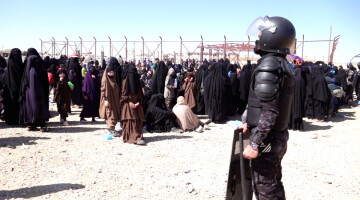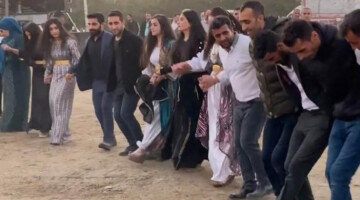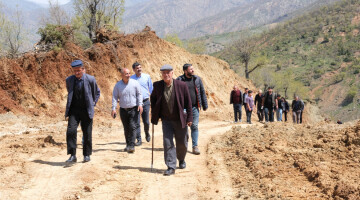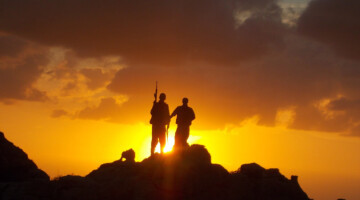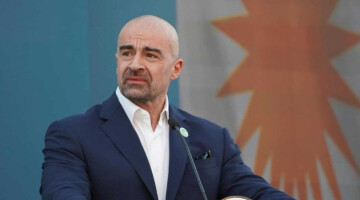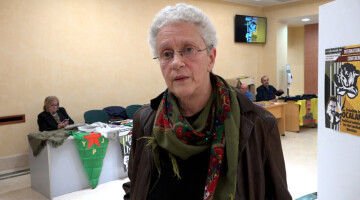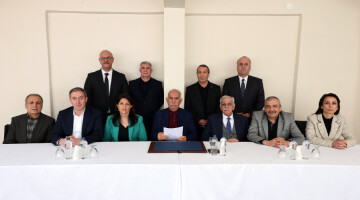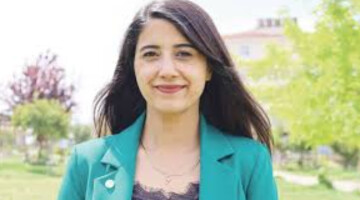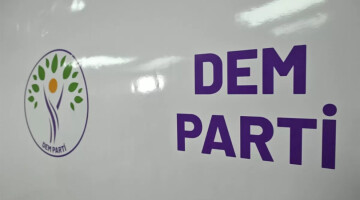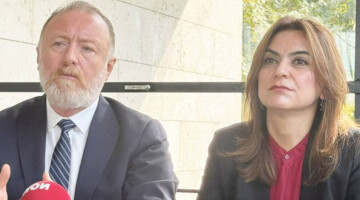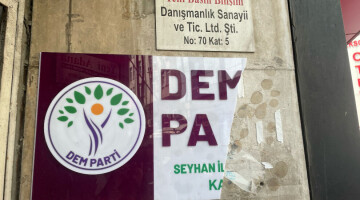London-based Peace in Kurdistan Campaign celebrated the 41st anniversary of the PKK with a written statement.
The statement recalled that "in the decade of the 1970s, there was a growing radicalisation of the Kurds because of the relentless persecution of all forms of Kurdish political expression. Turkey has the largest Kurdish community in the Middle East, some fifteen million people (about a fifth of the overall population); fifteen provinces in the south east are at least two-thirds Kurdish. The endemic poverty of these south-eastern regions combined with the weight of national oppression to generate a vast reservoir of discontent."
27 November 1978
The PKK was founded in 27 November 1978 in the village of Fis (near Lice) by a group of Kurdish students led by Abdullah Öcalan and in 1979 it made its existence known to the public.
The statement continued: "On 12 September 1980, the Turkish armed forces, led by General Kenan Evren, seized power in Turkey in a military coup. One of the chief aims of the coup was to crush the Kurdish movement. The constitution was suspended, parliament was abolished, all political parties and trade unions were banned and martial law was imposed throughout Turkey."
12 September 1980 coup
The 12 September coup meant hundreds of thousands of people were tortured, thousands disappeared, up to 650,000 people were arrested, films were banned, journalists imprisoned and killed and newspapers prevented from publication. Many death sentences were passed; the PKK had 122 death sentences passed against its members.
The statement added: "Given the military onslaught, the PKK withdrew some of its members from Turkey to Lebanon and Syria and began political and military preparations. Six years after its foundation, on 15 August 1984, Liberation Units of Kurdistan, led by PKK, with its guerrilla commander Mahsum Korkmaz, launched the armed struggle for freedom."
The PKK developed into a popular national liberation movement in the '90s
The PKK developed into a popular national liberation movement with a guerrilla force of 15,000 fighters at the height of its power in the 1990s. The movement attracted several million supporters and sympathizers drawn from all parts of Kurdistan, and from the diaspora communities in Western Europe- Britain, France and Germany in particular- which became an important source of support.
"In the 1990s, - said the statement by Peace in Kurdistan Campaign - the Turkish state responded with fierce repression by systematic execution of Kurdish civilians, torturing, forced displacement, destruction of villages, arbitrary arrests, detentions, disappearances and the murder of Kurdish journalists, activists and politicians. Over 40,000 people were killed in the conflict, including PKK militants, Turkish soldiers, pro-state paramilitaries and (above all) Kurdish civilians."
PKK first unilateral ceasefire in 1993
The PKK declared its first unilateral ceasefire on 20 March 1993. "Initially, - continued the statement - the Turkish government responded positively. At the time Abdullah Öcalan, the leader of the PKK, reflected: ‘We never took up arms for the sake of it. All we did was open a road for our nation to freely develop. But we had no other means to adopt: that is why we had to take up arms and have brought the struggle to this stage. The Kurdish situation is, at heart, a Turkish-Kurdish situation. Our struggle has come to the point of the Turkish public accepting the Kurdish identity; it has seen it necessary to recognise Kurdish existence and solve the problem…’"
Within a month of the ceasefire Turkish President Turgat Ozal died under suspicious circumstances and the dialogue with the PKK was ended. In keeping with Abdullah Ocalan’s policies and in the search for a peaceful solution to Turkish-Kurdish relations, the PKK declared eight unilateral ceasefires from 1993 to 2010. Each time the Turkish state responded with provocations and conspiracies.
2013 ceasefire responded by the AKP government with war
The 2013 PKK ceasefire resulted in negotiations and the 10-point Dolmabahce agreement for the resolution of the Kurdish issue with Turkey. Turkish President Erdogan then denounced the agreement and resorted to all-out war on the Kurds. He launched a war of annihilation against Kurdish cities, towns and villages in South East Turkey.
August 2019: Ocalan called once again for dialogue
In August 2019, from the prison on Imrali Island, Abdullah Ocalan proposed a peaceful solution to Turkish-Kurdish relations and has asked Turkey’s authorities for dialogue. Until Turkey acknowledges the identity and rights of the Kurds it will remain in a state of war. There can be no progress towards peace and democracy in Turkey or in the Middle East without a just solution to the Kurdish question.
Peace in Kurdistan Campaign underlined that "the Turkish government and all the Western governments have proscribed the PKK as a terrorist organisation to justify their suppression of a freedom movement. Neither the PKK nor the Kurdish people will ever be crushed; these last 41 years are testimony to that. The Kurdish resistance has won supporters around the world. Its people are building a new model of how to live in the Middle East, a model with lessons for us all: for women and equality and against patriarchy; for democracy and unity and against centralised dictatorship and sectarianism. In their endeavours lies hope for the future."
Background
The PKK was founded in 27 November 1978 in the village of Fis (near Lice) by a group of Kurdish students led by Abdullah Öcalan and in 1979 it made its existence known to the public.
The PKK was formed as part of a growing discontent over the suppression of Turkey's ethnic Kurds, in an effort to establish their linguistic, cultural, and political rights. The use of the Kurdish language, dress, folklore, and names were banned in Kurdish-inhabited areas. The words "Kurds", "Kurdistan", or "Kurdish" were officially banned by the Turkish government.

